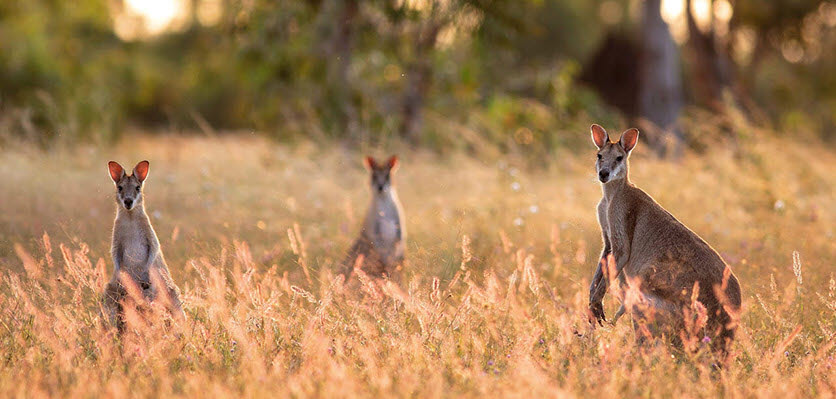
As heatwaves become increasingly common, it’s not just our pets we have to worry about in the hot weather. Heatwaves threaten many of our wildlife species, with the lack of shade and water in our urban areas exacerbating the problem. Fortunately, there are seven steps we can take to help wildlife suffering heat stress.
Keep an eye on the forecast
If a heatwave is predicted in your area, this is the most dangerous time for wildlife. Sustained high temperatures make it difficult to keep cool, and some species are particularly sensitive to the heat. Take precautionary measures during a heatwave.
Supply water
All animals need water to survive, with most species using more water during hot weather to keep their bodies cool. Provide water around your garden and yard in multiple dishes to help the greatest number of animals. Shallow dinner plates covered in water make a great water source for small skinks and lizards. Deeper ice cream containers filled with water are excellent for larger marsupials like wallabies. Bowls wedged in trees or bird baths filled with water are useful for birds. All water dishes should have a rock in the middle raised above the water in case any small animals fall into the water container.
Keep your cats and dogs away
Heat-stressed wildlife are particularly vulnerable to predators such as cats and dogs, as they are slower and weaker due to dehydration. Keep your cats and dogs away from water sources and ideally inside during heatwaves to reduce the risk of predation on wildlife. If you’re inside with the fans or aircon on during a heatwave, your pets would rather be with you anyway!
Let them rest
Wildlife often stay away from humans, but when they are heat stressed, they might venture into our homes and yards. If you find wildlife resting on your patio or in your carport during a heatwave, leave them to rest and recover unless they are in a dangerous situation.
When to call for help
If you come across wildlife that seem severely heat-stressed, such as a koala that is panting and at the bottom of a tree, or birds that seem lethargic, are on the ground and don’t try to fly away from you, it’s time to call a wildlife carer or veterinarian for advice. Before approaching any wildlife, you should always check with a wildlife care group to stay safe. Some animals carry deadly diseases (e.g. bats) or are dangerous (e.g. snakes and goannas) and should only be handled by experienced and vaccinated wildlife carers. Once you’ve checked with a wildlife carer, and they’ve given you the all clear to take the wild animal to the veterinarian, you can now approach the animal.
Securing the sick animal
Always put a barrier between you and the wild animal, such as a towel or welding gloves. Gently pick the animal up, taking care to avoid the face and claws. Secure the animal in a cardboard box with air holes and offer them some water in a shallow dish.
Attending the veterinary clinic
Once the animal has been secured, take them to your veterinarian as quickly as possible. Don’t feed them, as wildlife have very specific diets and the wrong food can make them sick. Call your veterinarian ahead of time to let them know you’re coming, and before you leave the clinic, always provide plenty of information on where you found the animal.
Veterinarians treat hundreds of thousands of sick wildlife in Australia every year, providing an important community service and helping to improve the welfare of our wildlife.
